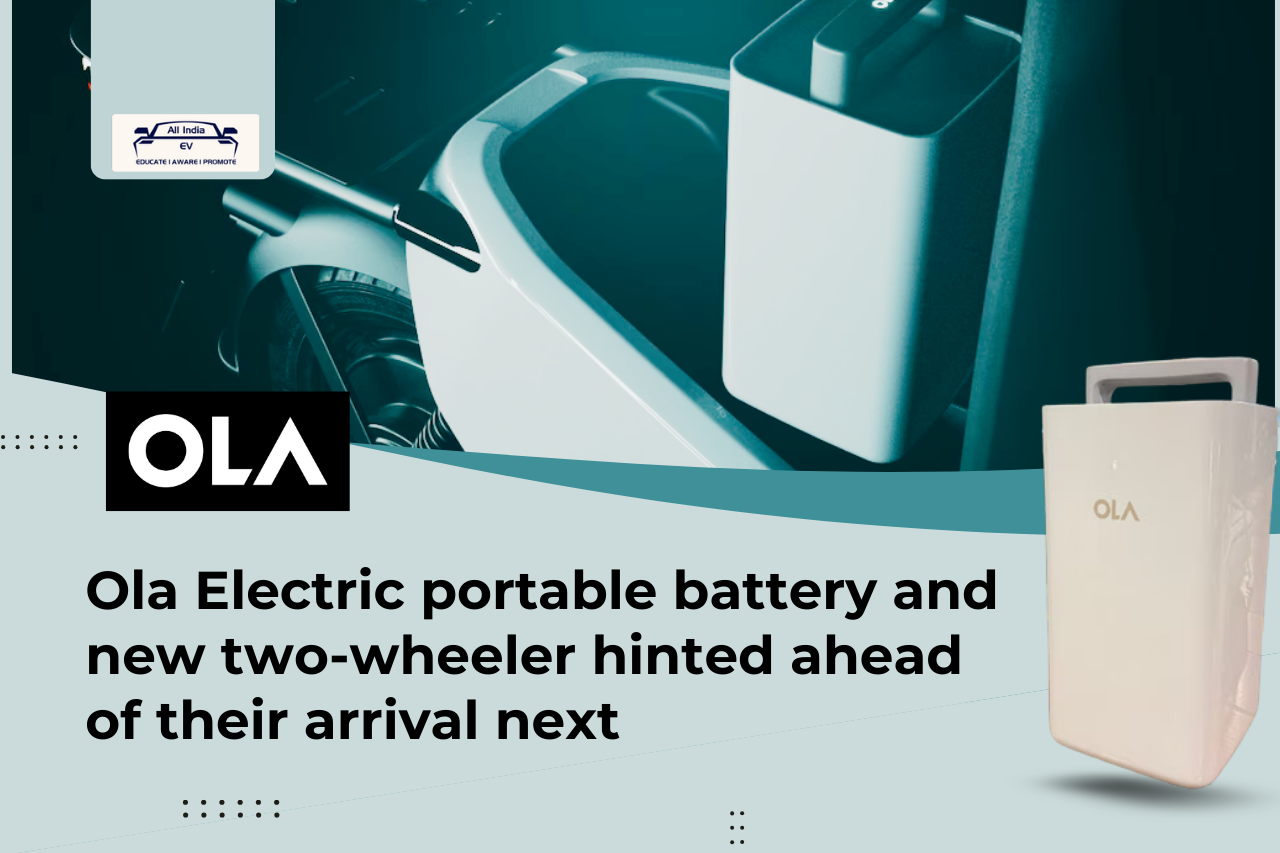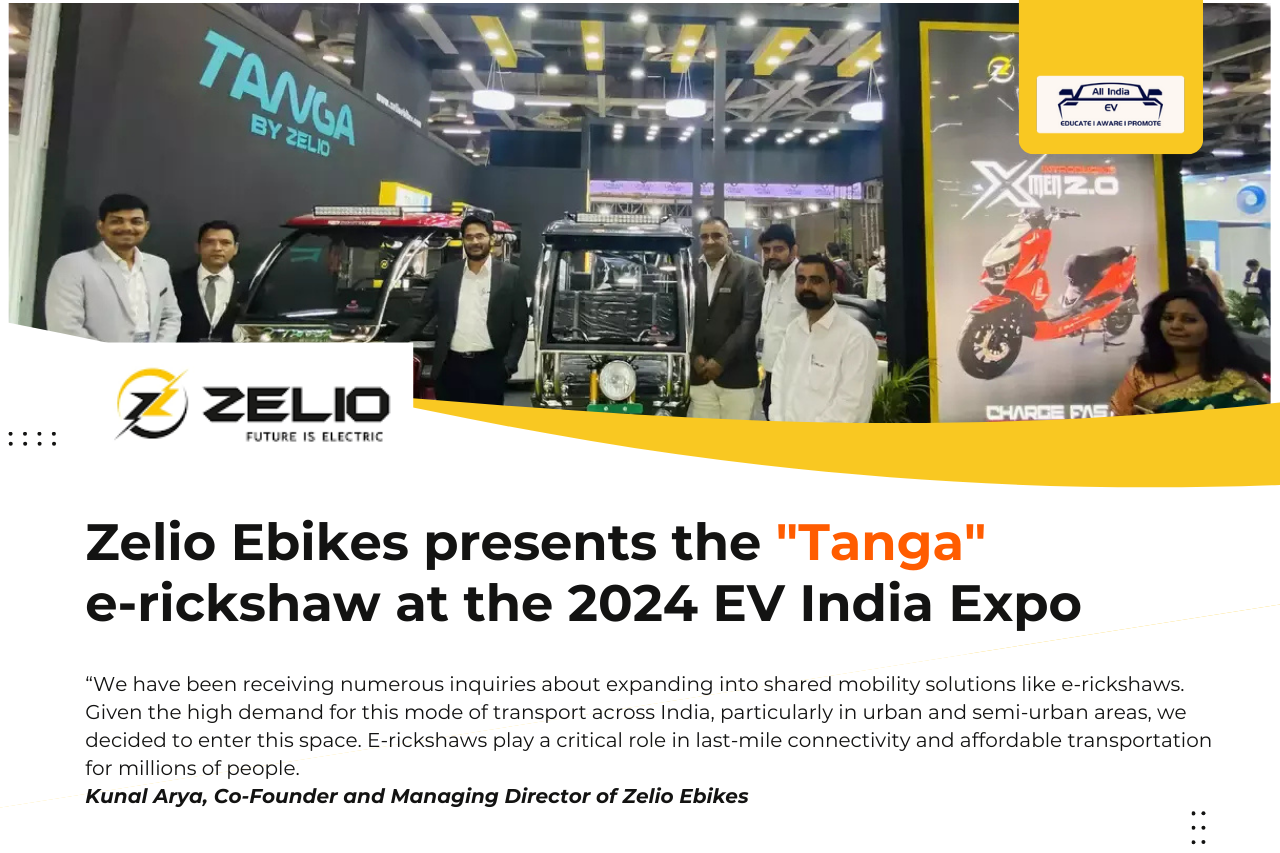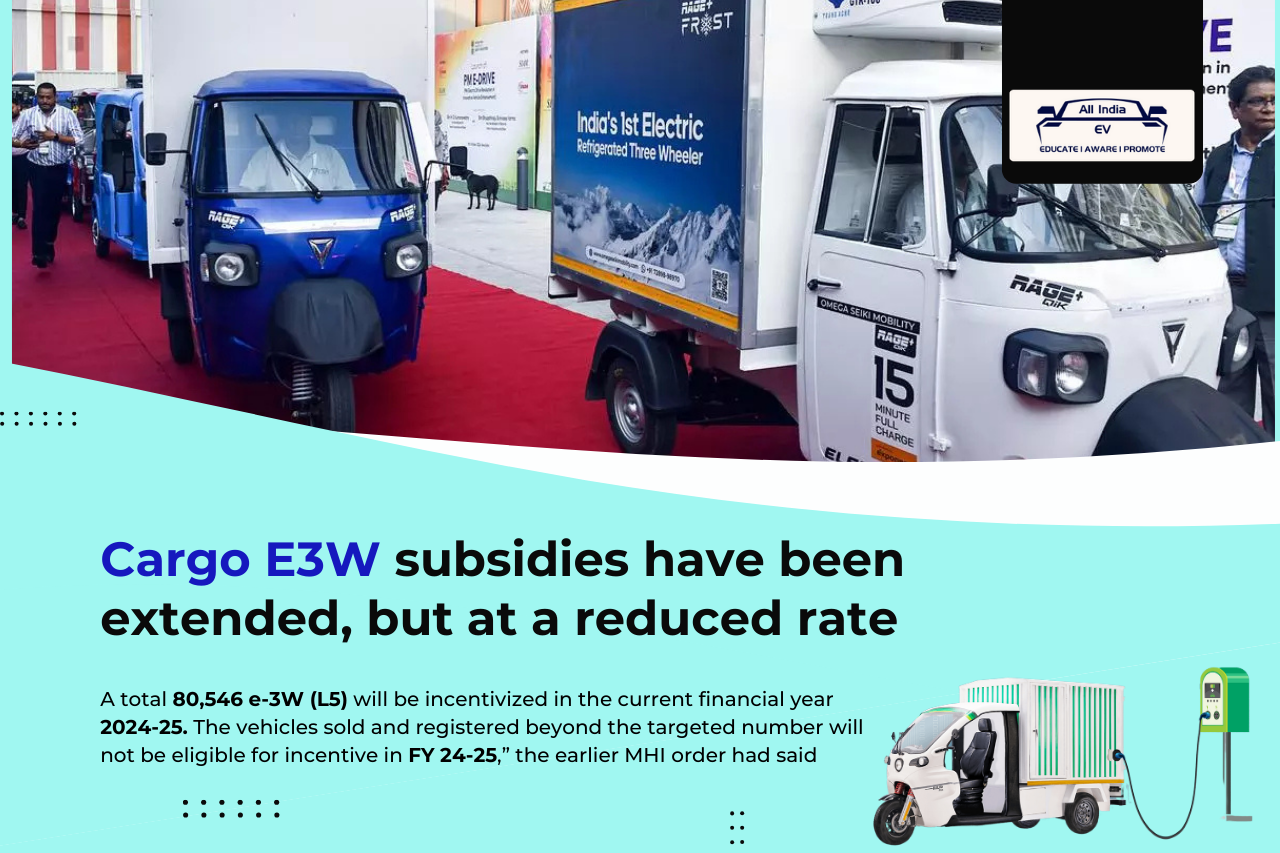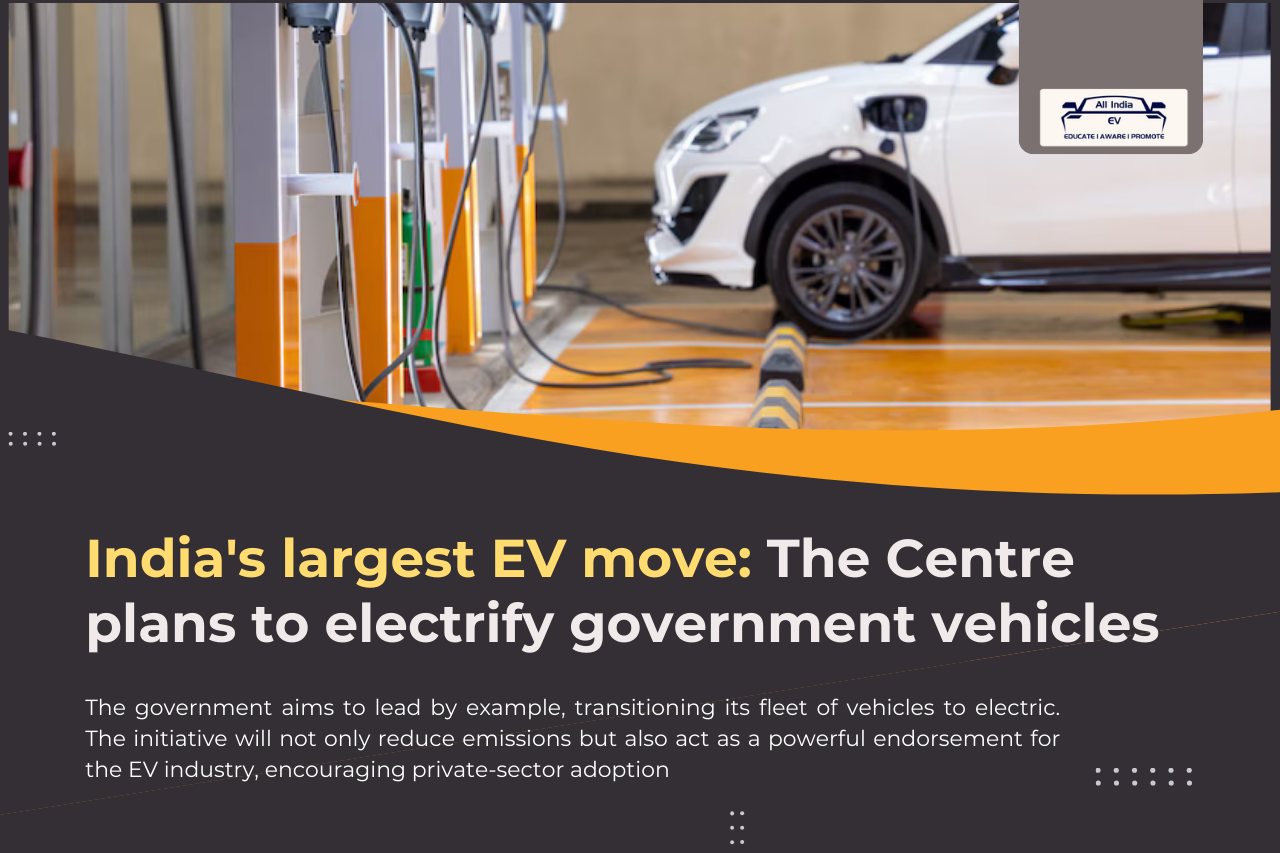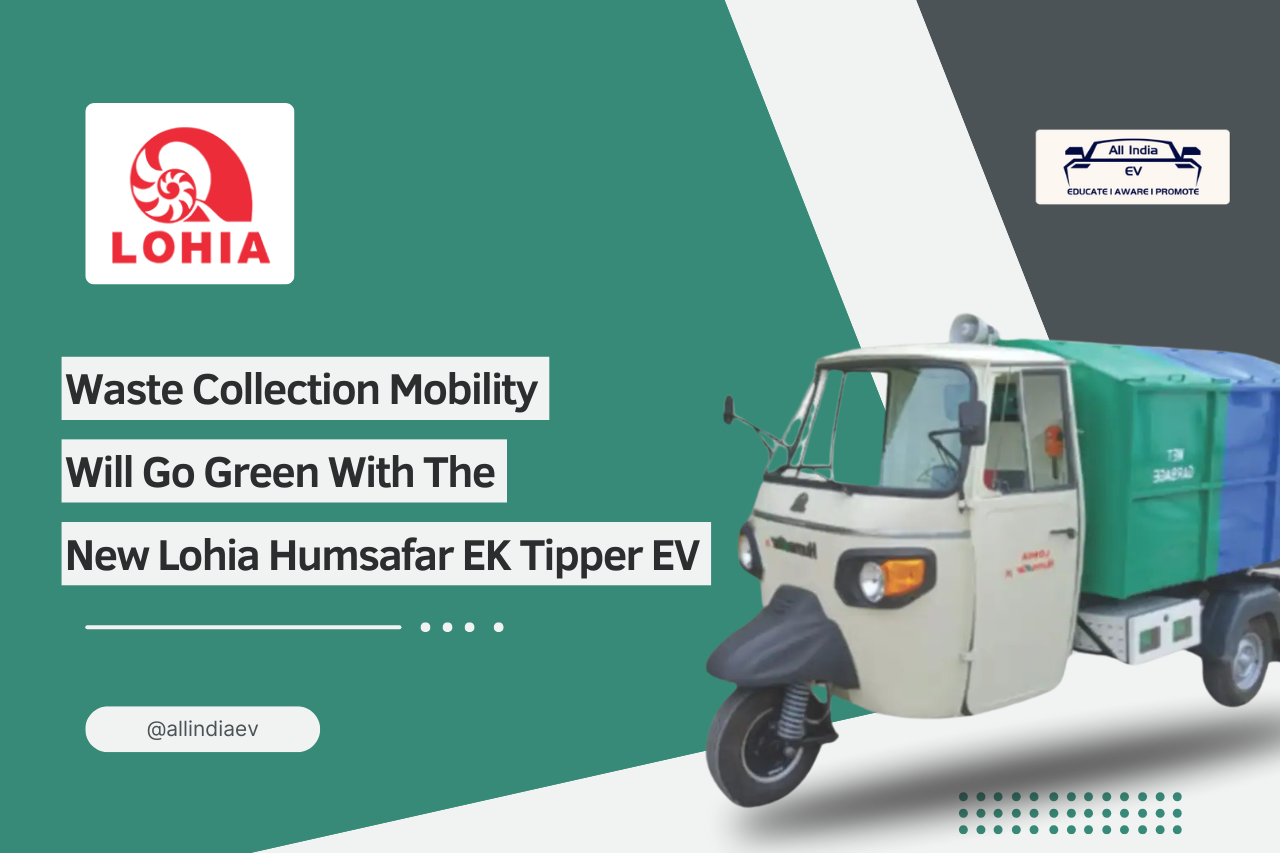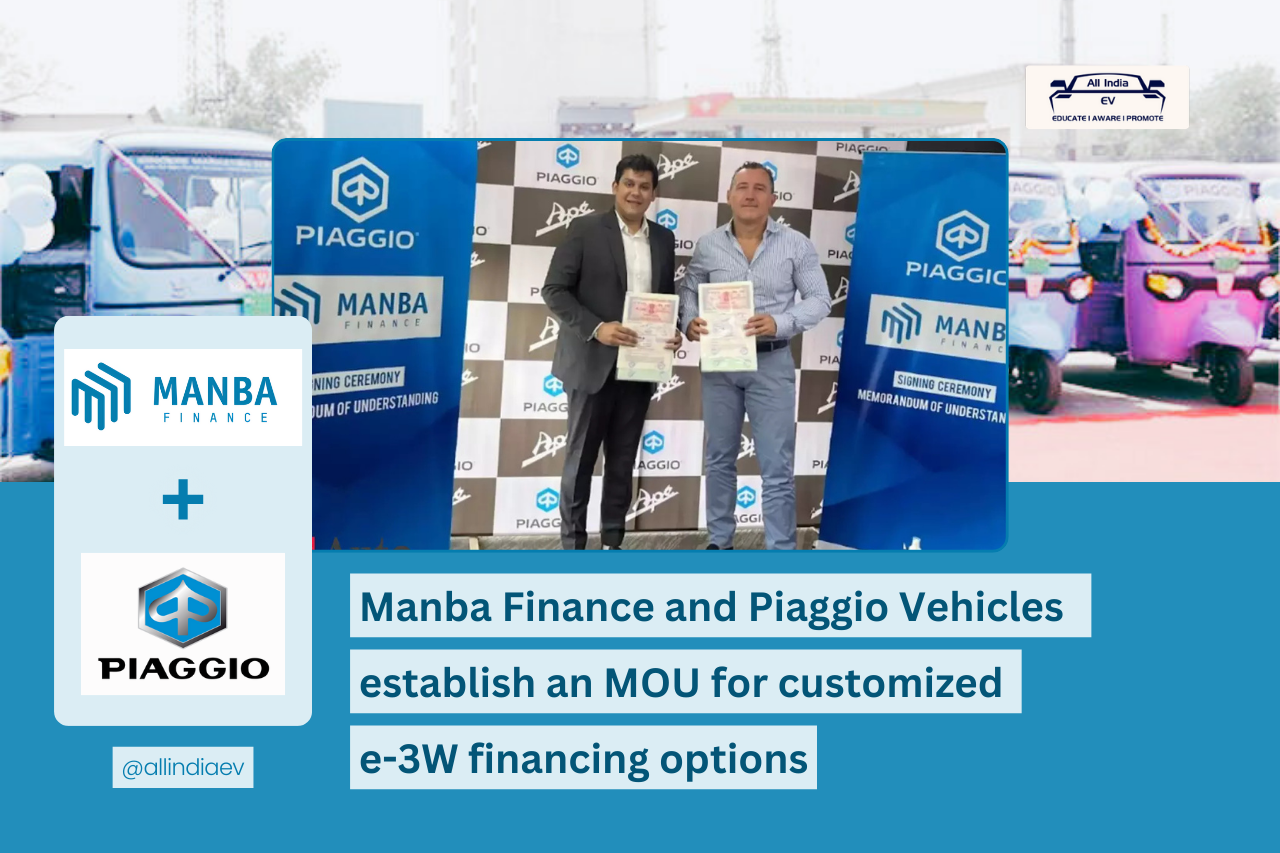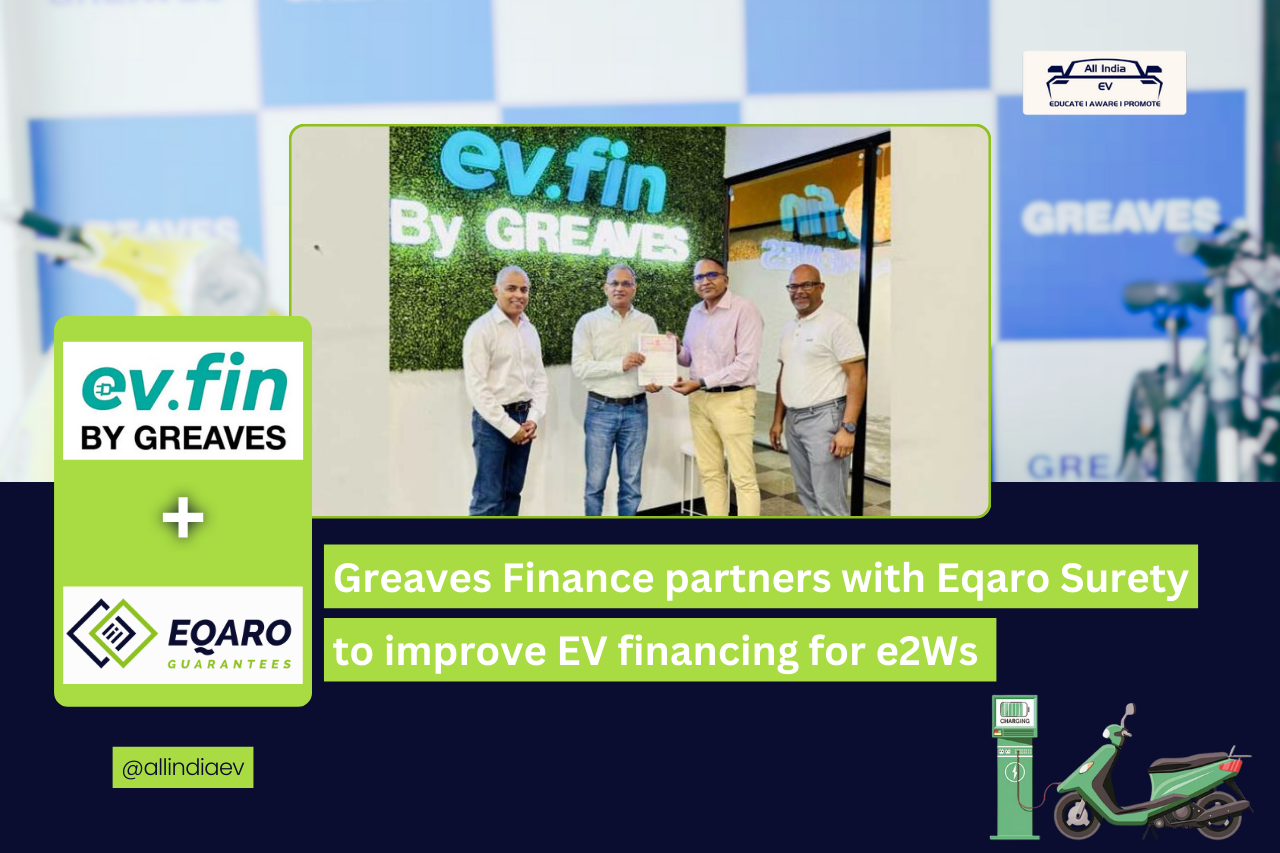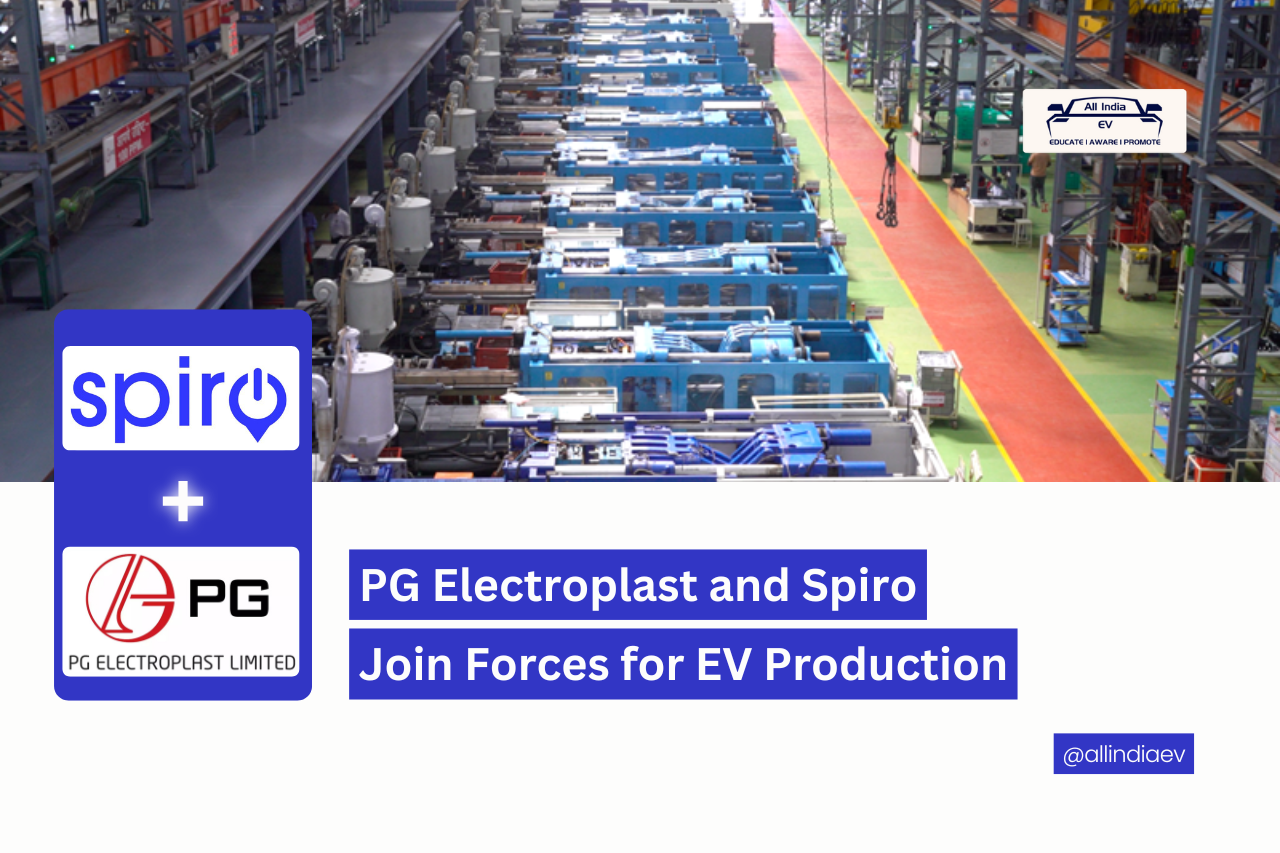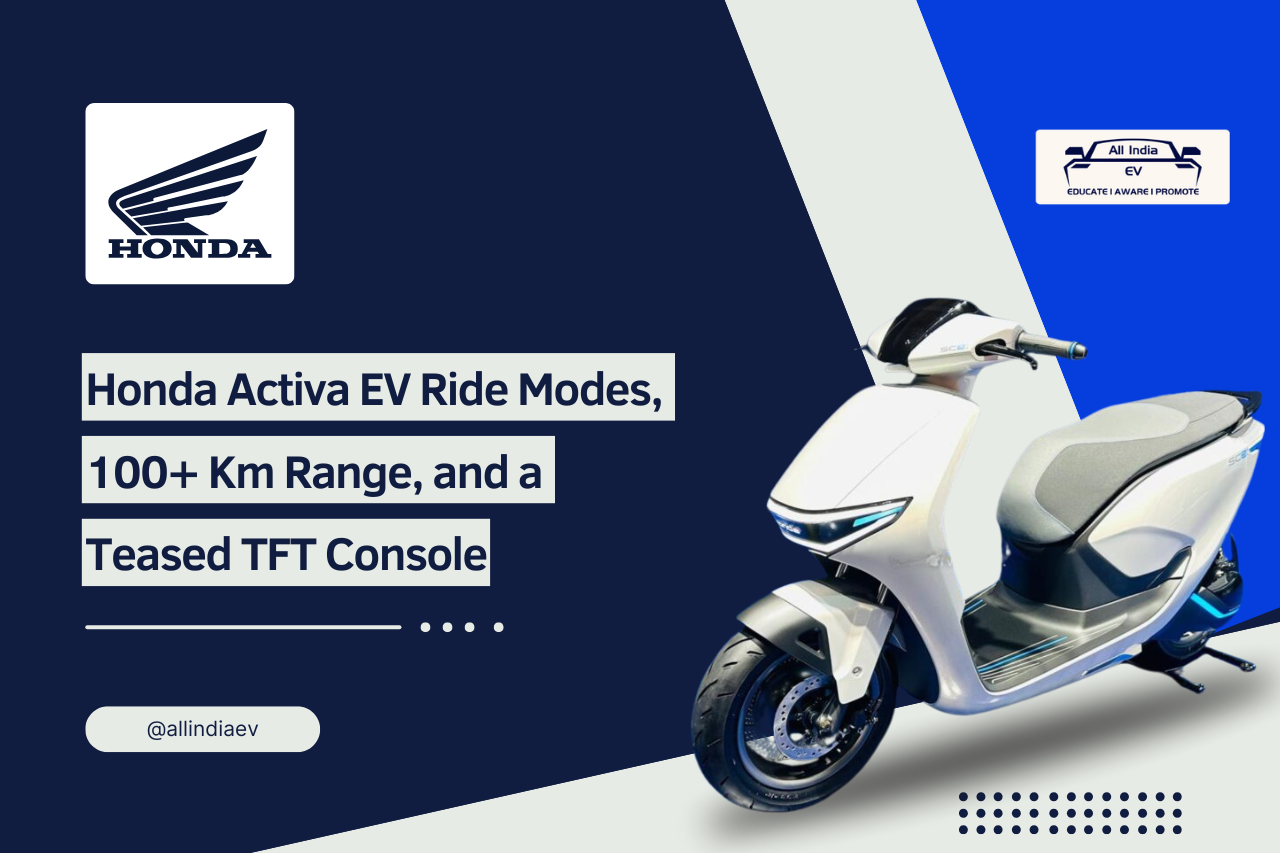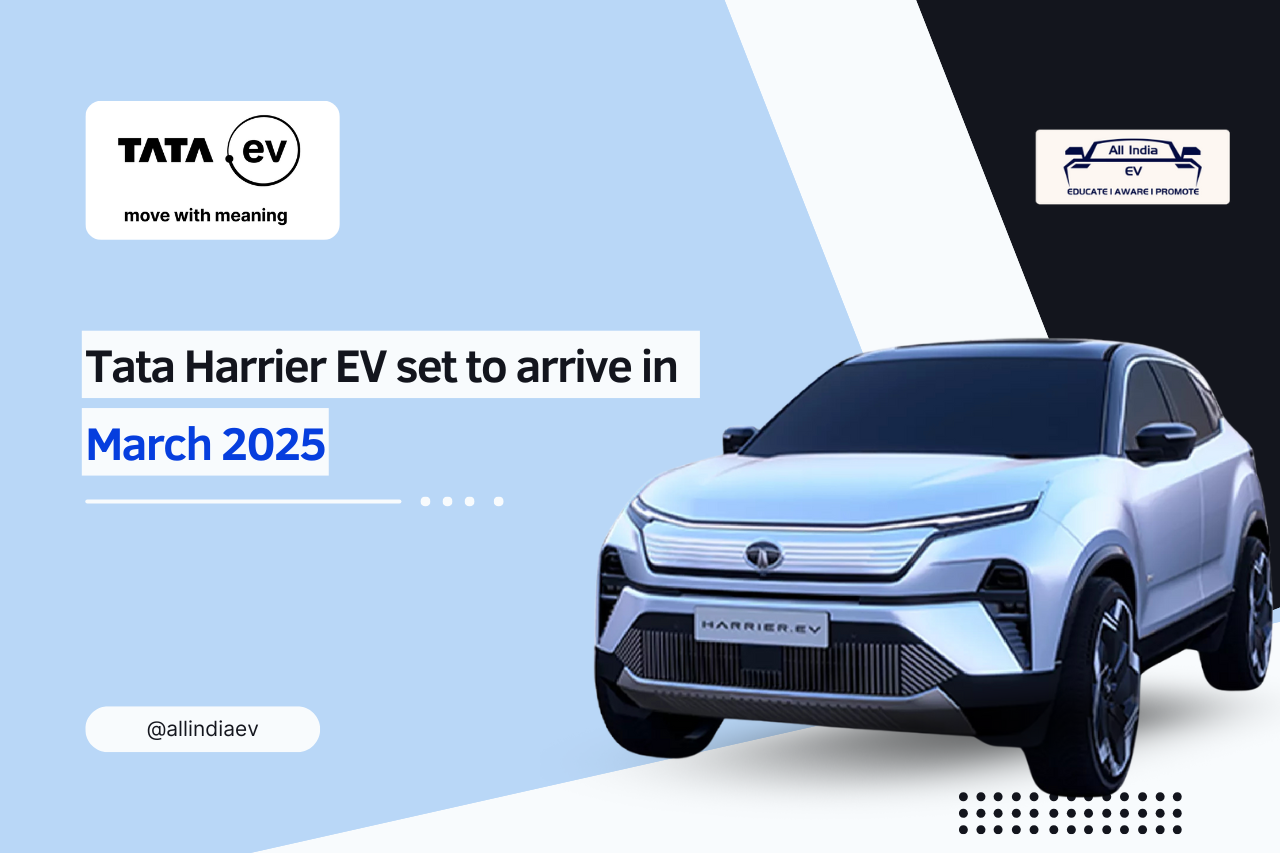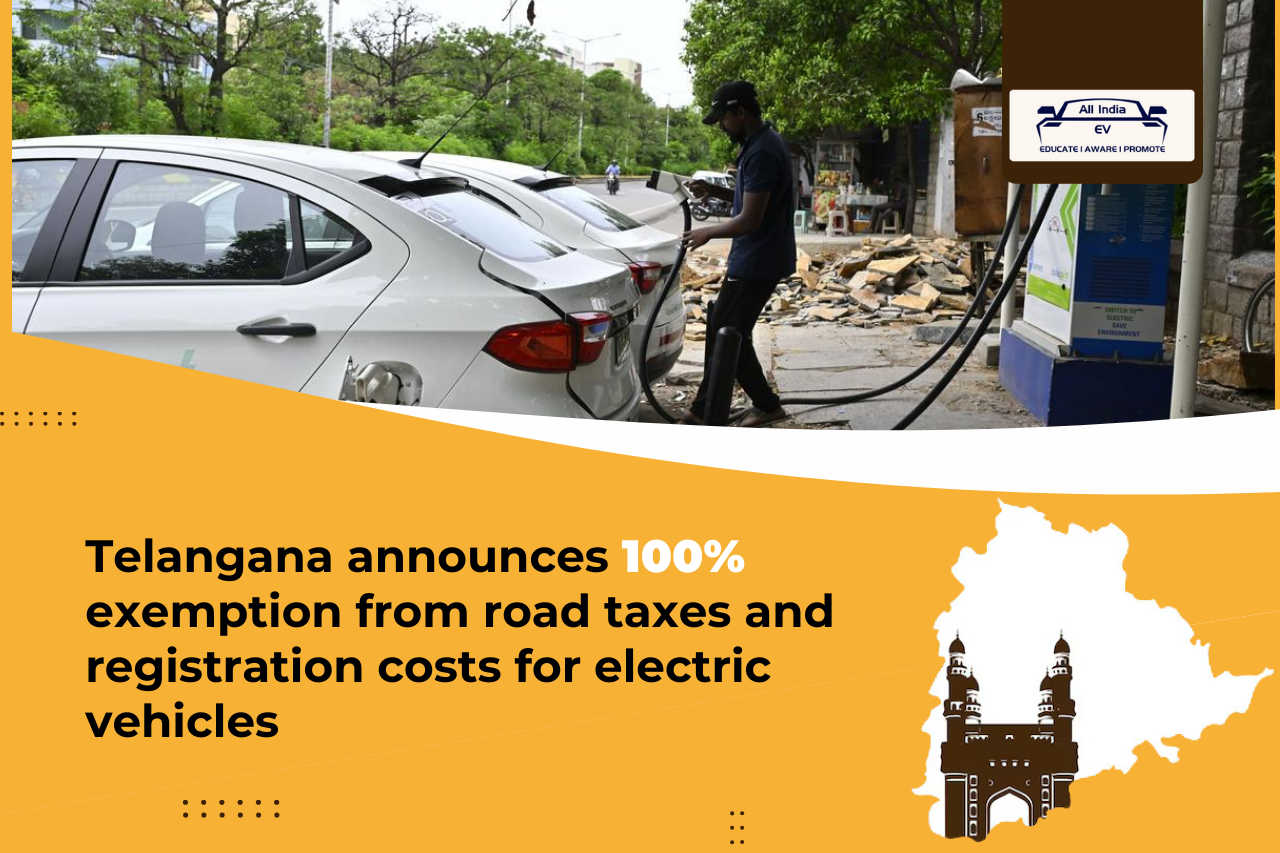
Ola Electric Teases New Portable Battery and Electric Two-Wheeler
Ola Electric Teases New Portable Battery and Electric Two-Wheeler Ola Electric is set to make…
Ather Energy Introduces Eight70 Warranty for Rizta and 450 Series Scooters
Ather Energy Introduces Eight70 Warranty for Rizta and 450 Series Scooters Ather Energy has announced…
Zelio Ebikes Launches Tanga E-Rickshaw at EV India Expo 2024
Zelio Ebikes Launches Tanga E-Rickshaw at EV India Expo 2024 Zelio Ebikes, a prominent player…
Government Reduces Subsidies for Electric Three-Wheelers Amid Surging Sales
Government Reduces Subsidies for Electric Three-Wheelers Amid Surging Sales The Indian government has announced a…
India’s Big EV Move: Centre Plans to Electrify Government Vehicles
India's Big EV Move: Centre Plans to Electrify Government Vehicles As India marches towards a…
Lohia Unveils Electric Humsafar IK Tipper for Waste Collection
Lohia Unveils Electric Humsafar IK Tipper for Waste Collection Lohia has introduced the Humsafar IK…
Piaggio Vehicles Partners with Manba Finance for Tailored Electric Three-Wheeler Financing Solutions
Piaggio Vehicles Partners with Manba Finance for Tailored Electric Three-Wheeler Financing Solutions Piaggio Vehicles Pvt…
Greaves Finance Partners with Eqaro Surety to Enhance EV Financing for Electric Two-Wheelers
Greaves Finance Partners with Eqaro Surety to Enhance EV Financing for Electric Two-Wheelers Greaves Finance…
PG Electroplast and Spiro Mobility: A Strategic Partnership for the EV Future
PG Electroplast and Spiro Mobility: A Strategic Partnership for the EV Future PG Electroplast's strategic…
Honda Activa EV: A New Era of Electric Scooters
Honda Activa EV: A New Era of Electric Scooters Honda has unveiled the electric version…
Tata Harrier EV Set to Launch by March 2025: A New Era of Electric SUVs
Tata Harrier EV Set to Launch by March 2025: A New Era of Electric SUVs…
Telangana Offers Full Tax Exemptions for EVs
Telangana Launches Landmark EV Policy: Full Tax Exemptions to Drive Green Mobility Telangana has introduced…


